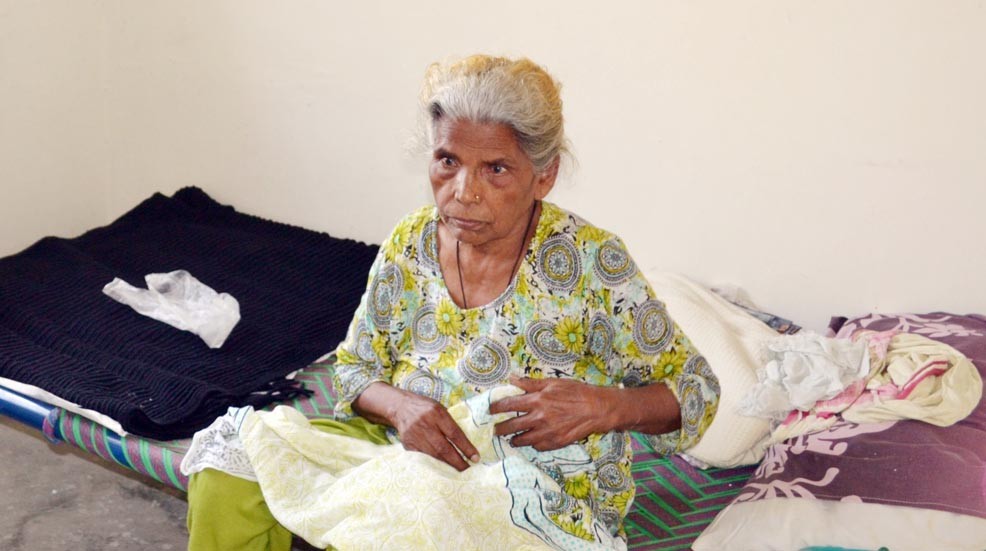
As the Muslims around the world celebrated Eidul Fitr, there were those in the haunting rooms of the old people’s homes in the city for whom life was no different -- come rain or shine

Naima Khanum, a septuagenarian widow who has been living in Dar-ul Kifala for over a year, sounded unenthusiastic. "There’s no Eid for me. Yes, the administrators [of Dar-ul Kifala] organised a programme for us but there’s no happiness or celebration for us, as we have all left our homes."
Saeeda, a grey-haired woman, was more excited as she expected her sister’s children to visit her one of the Eid days. Did they visit her eventually? No one knows.
This year, on Eid, the management of what is one of Lahore’s most prominent old people’s homes arranged gifts for its elderly inhabitants. Saeeda said she wasn’t considering wearing the clothes she had got because "I don’t like dark reds or greens; I stick to mellow colours."
Still, she was grateful for the gifts.
Mian Muhammad Ahmed Bhatti, the manager of Dar-ul Kifala, told TNS that on the day of Eid the residents would be provided with food by the trustees while the Chairman’s daughter, Mrs Fareeda Qardar, was also due to visit them and distribute gifts.
In another part of the city, Happy Homes is home to 70 years old Amna for the past seven years now. Amna echoed Khanum’s words, "There is no one here for us in this world. Hence, there can’t be any real Eid."
She said that traditionally there is saivyyan (vermicelli) as part of the Eid menu. "I love it!"
She also said that she did not participate in the chand raat celebrations "…because of my extremely weak eyesight."
As the administration of Happy Homes distributed both stitched and unstitched clothes as well as bangles ahead of the Eid, she did not feel the need to buy anything.
While she wasn’t upbeat about the Eid, Amna said she liked the month of Ramzan. "You know, I was the first to wake up for Sehri," she said excitedly.
Asghari, who lives in Amna’s neighbouring room, was bent over a pile of clothes. She was sorting them out on the day before Eid so that she could get them washed. Behind her lay a shirt she was in the middle of stitching. "I am not a little child that I will play on Eid," she said. "There was a time when I was interested in mehndi. I was young back then. I am not, anymore."
But Asghari likes to offer prayers on Eid and eat "what is provided to us.
"They give us everything here," she says humbly.
Some of the residents, including Major Ahmad, visit their families. The day before Eid, Ahmad’s brother came and took him along.
According to Mian Haider, the manager of Happy Homes, "Ever since Ahmad’s brother found out that his children and wife had left him here, he makes sure he comes to the place and take him away for Eid."
In the men’s room, the wardens were placing newly stitched shalwar kameez suits on the beds. Some of the men were dozing off. A young boy was sitting on Muhammad Yunus Saleem’s bed, chatting with him. Saleem later explained, "He is not my relative. But I consider whoever is there for me, my relative.
"His mother lived in our neighbourhood and was like a daughter to me."
When asked about Eid, he said, "There’s nothing much to do. We just sit around like any other day. There cannot be much of an Eid for poor people. My daughter lives in Model Town. I intend to take a rickshaw and visit her on one of the Eid holidays. I don’t want to bother her on Eid’s first two days. She must celebrate it with her in-laws in peace."
Another woman, who wished to remain anonymous, was nostalgic about times when Eid was more enjoyable. "I have been at Happy Homes for nine years now. Initially, Eid was a lot of fun because I would host everyone in my suite. I would cook and then everyone would come over and take part in the celebration. Now I have stopped doing that because there are too many petty fights and arguments amongst the women. I still give the wardens and the helper some Eidi, though."
Summing up the ambivalence the residents feel for Eid, she said, "We offer prayers, we get some saivyyan to eat, and that’s it. That’s our Eid."